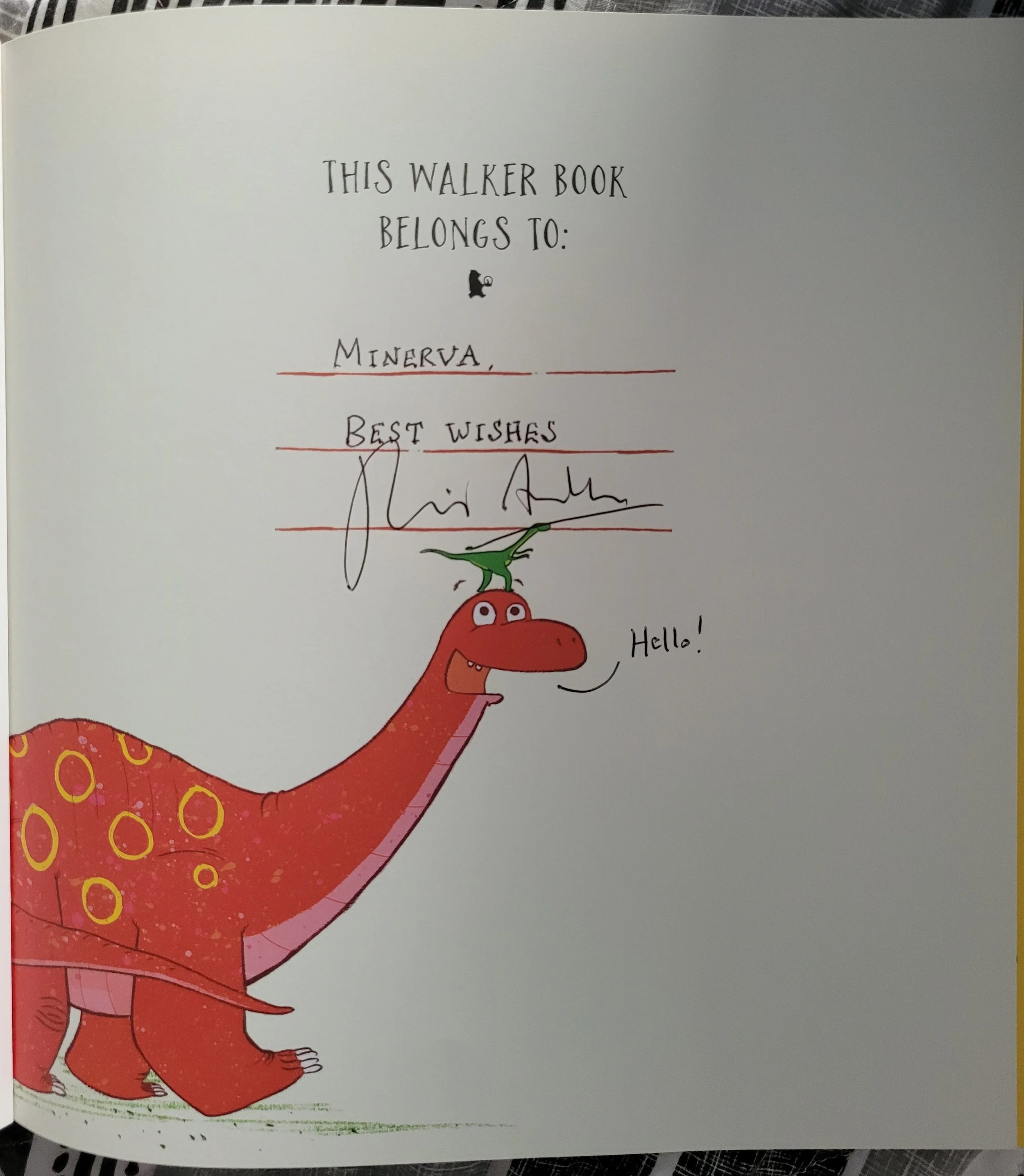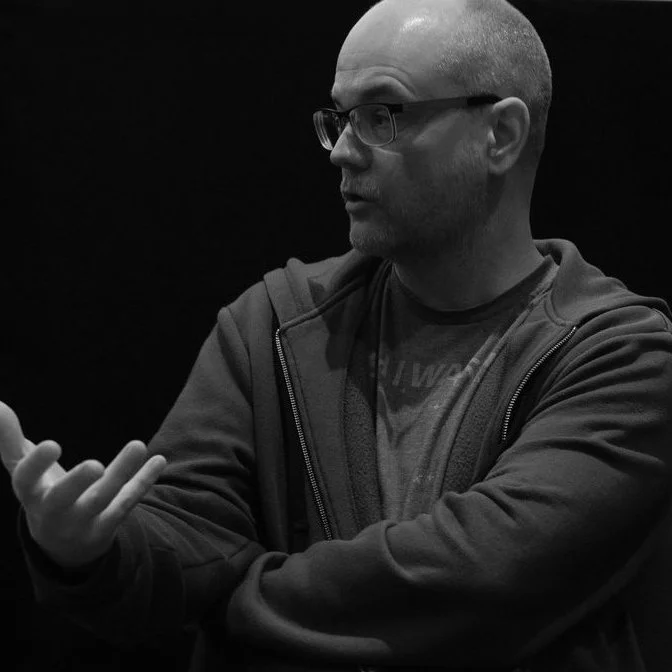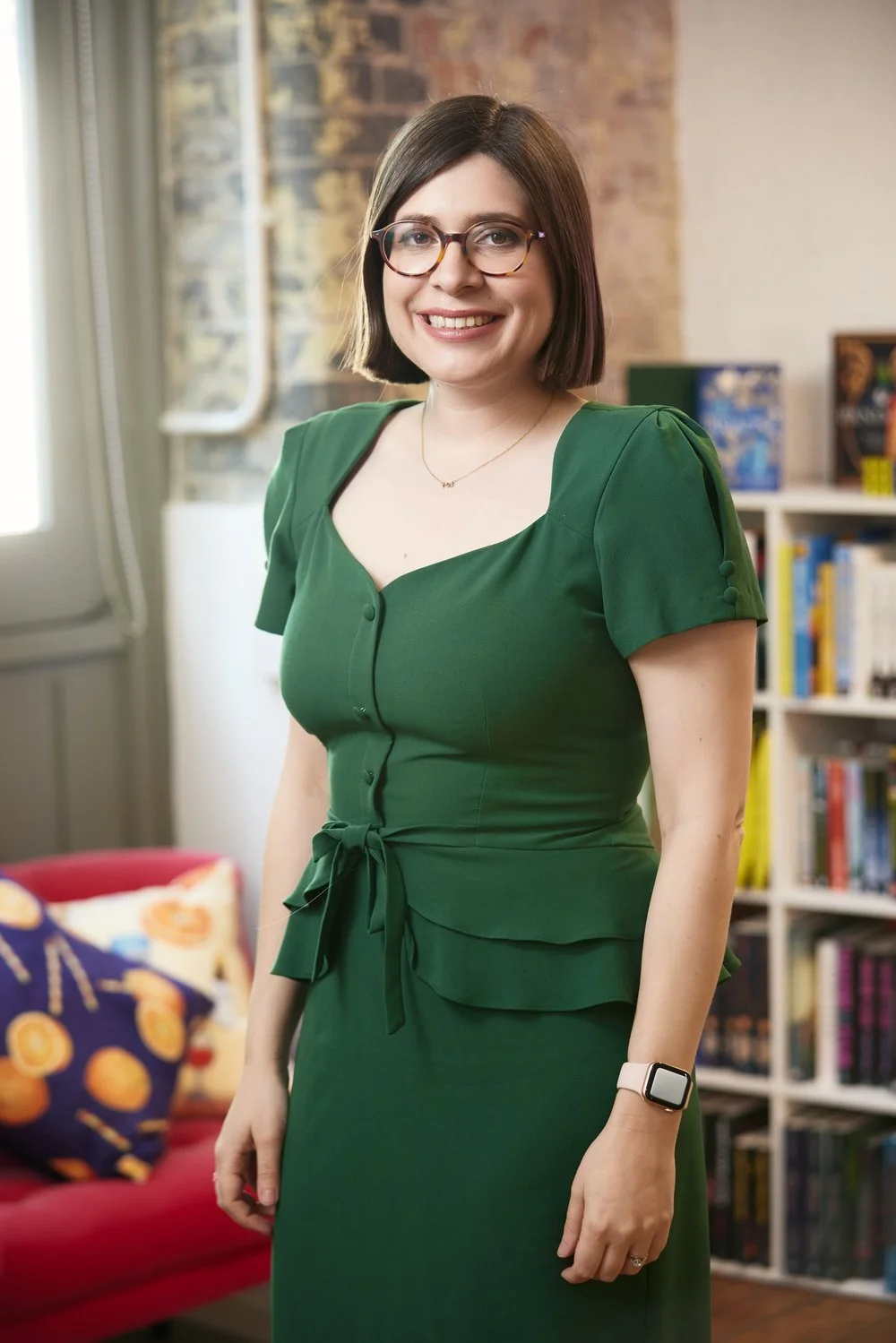What Happens at a Great Writing Festival
A second-person account of my day at the I AM Writing Festival, Winchester, in June.
Reading time: 6 min
Morning
You’ve planned the day for weeks, and you’re so excited your wife can no longer suffer you. It’s your first writing festival, ever, so you want to get there an hour early, to get the gist of the venue and make sure not to get lost between the back-to-back events of a very full day.
You’re late.
You park far, too far, and you barely make it before the first keynote speaker starts his speech.
The organisers—the lovely Sarah and Elane of I AM in print—seem to know who you are, which is disarming, but also so nice you can’t stop yourself from thinking this is going to be a good day.
A quick cup of coffee and you sit in a state-of-the-art auditorium, listening to Philip Ardagh and his hilarious take on his own career. You then decide to buy one of his books and get it signed.
You tell him it’s for your daughter, but you know it’s actually for you.
Workshop 1
After the speech, you rush to the fourth floor of the West Down Centre for Scott Pack's workshop “A writer’s guide to the publishing world,” and you are immediately identified as the Italian in the room. The workshop is amazing. So Amazing, in fact, that you know you’re not going to be able to refrain from using the following pun: it’s Packed with vital information. (Sorry)
Busting myth after myth around agents and publishers, showing numbers and timescales as they are, Scott never fails to be entertaining and engaging, and you already regret missing out on his other two workshops.
The schedule doesn’t take hostages, and you have to leave to get to the Business Centre for your first 121 with a literary agent.
Scott Pack, courtesy of Eye Books
Agent 121
The experience is quite surreal. You wait in a room with eleven other terrified authors, and when the time comes, you enter a massive room with wooden ceilings and pictures of past Winchester University’s Headmasters. You wait a few seconds on the balustrade of this marvellous room and you peek down at the twenty or so tables with, on one side, the agents, and on the other the aspiring authors.
Then, the bell rings—it’s just a phone alarm, but it feels solemn in that environment—and you’re invited to descend into the most precious fifteen minutes of your early writing career.
You sit just as the previous author leaves, and the agent simply tells you she’s not received your submission.
You’d expect her to send you away, rearrange, and you’re a bit disappointed, but the agent asks you to pitch your novel, so you start talking, and the agent starts asking questions.
Tip N. 1
You should be able to talk about your work without preparation. If you can’t do it, who can?
You’ll see her again after she receives your submission package, but now there is no time to waste, you need to eat something or you’ll faint.
The lunch is delicious, the food able to satisfy even your Italian palate, and before you get to the dessert, the lovely Sarah is already looking for you to make sure you will have a meeting with the first agent.
Photo by Kerin Gedge on Unsplash
She and Elaine are just brilliant, on top of everything, and being the heart of the festival, you try to chat a little with them, hiding the full scale of your admiration any time you can.
After a quick glance at the ducklings playing in their pond, it’s time for your second 121.
Again, you go through the same process, but this time the agent got your first three chapters, and he liked them.
Tip N. 2
Listen carefully to what the agents say, and try to pick up consistency in feedback. They know much more than you do!
Workshop 2
You don’t want to talk too much about the agents in this article, because in 3 short meetings you’ve learnt more than in the past 3 months about the publishing industry, and you want to give it a fair amount of time, but you manage to see both of them in the end and it is a more than precious experience.
Back to the fourth floor for your second workshop of the day with the legendary Jo Fletcher and Ian Drury. It’s a lot of fun. You get the chance to talk about your Fantasy/Sci-Fi work in progress, listen to other promising fantasy authors and you get to ask questions to two of the biggest experts in the field.
They tell you to never write in the second person. And that’s why you’re doing it now, so that you don’t end up submitting something in the second person to them.
At this point, you’ve got almost 40 pages of notes, but if you had to choose only one takeaway from this second workshop it would be the following:
Jo Fletcher
Ian Drury
Tip N. 3
Always keep in mind what your book, your chapters, and your scenes are about.
Evening
Just before the last keynote speaker, you meet a promising new agent who shares your same passion for Fantasy and Sci-Fi, and this turns out to be just another reminder that the Writing community is simply the best (quoting Tina Turner).
To close the day, you listen to the superstar agent Juliet Mushens and her insights behind the scenes of who’s made a living out of writing.
Juliet Mushens of Mushens Entertainment
It’s great, really, but it’s almost 7 pm, and your energy level is running dangerously low.
When you grab your things, ready to go back home, someone says hello from the seat behind you. The two agents you’ve seen earlier have noticed you and have stopped to say it was nice to meet you.
You regret once more skipping the dinner and the quiz, but promise yourself to book the full package next year.
Driving back home you feel lucky. You’re damn lucky you found your passion, and you’re damn lucky the people who share it are as nice as they are.
The weekend is over, but not your excitement. You tell the whole story of your day to your wife, and then struggle to go to sleep. Tomorrow is another day, and you need to sit down and write.
Alla prossima.
The Marvellous Sarah and Elane!








